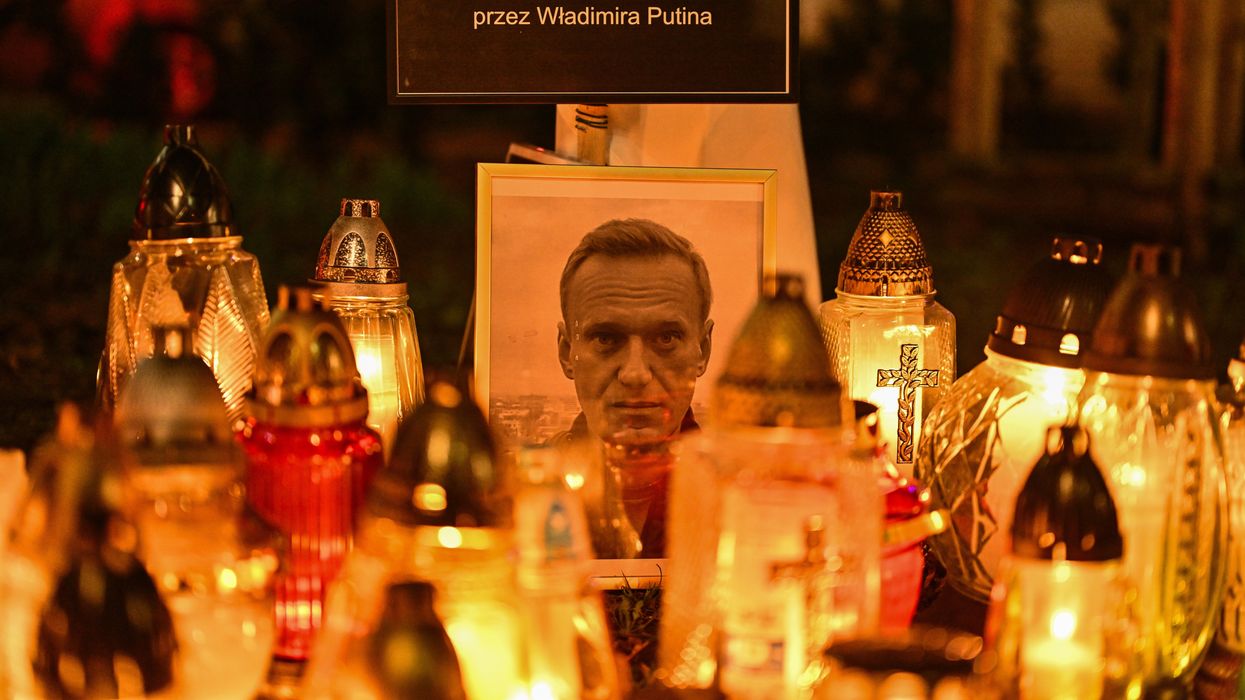Epshtein is the chief executive officer of the Renew Democracy Initiative and chairs the Peace & Dialogue Leadership Initiative.
From our brief interaction, Russian opposition leader Alexei Navalny probably thought I was — generously speaking — naive.
I met Navalny in 2010 when he was a Yale World Fellow and I was an undergraduate. Over coffee, I asked him if I could work for him in Russia over the summer. Influenced by my Soviet-born, anti-communist parents, and shielded from harm by my American hubris and passport, I had grown up with the romantic notion of a swashbuckling life combating dictatorship.
Navalny patiently, perhaps with some amusement, informed me that what he was doing was illegal and not particularly conducive to a summer internship for an American college student. His underlying point was more direct: If you take a vacation from democracy, you might not return. Russia isn’t the sort of place where an 18-year-old American kid could just drop in for eight weeks, agitate against the leader, have some kvass and then come back stateside for the fall semester.
Now I’m safely writing from Virginia with a cup of coffee in my hand and Navalny is dead in an Arctic penal colony, murdered by Vladimir Putin. The Russian state will not even allow his mother to conduct a proper burial.
Perhaps most tragically of all, Putin had help, not only from his cronies in the Kremlin but from useful idiots, tankies, and cynical self-promoters in the West who offered him the legitimacy and impunity he needed to silence the press, invade his neighbors, and kill one of his most prominent opponents. Every handshake with a Western leader, every call for Ukraine to offer concessions, every cynical justification offered for Putin’s actions was another nail in Navalny’s coffin. The actions (and inaction) of Western leaders have real consequences for those living under the heel of authoritarianism.
Change in countries like Russia can only come from within but it can be supported (or thwarted) from without. When Western leaders treat Putin as a respected peer, they legitimize him in front of his own people. Justifying his actions and claiming that they are no worse than perceived U.S. misdeeds undermines the Russian dictator’s domestic opponents by overshadowing their harrowing and true tales of oppression. It may well be no accident that Navalny’s death followed so closely on the heels of Tucker Carlson and Putin’s puppet show earlier this month. After all, if a “leading American voice” is willing to come to Moscow and meekly submit to Putin over the course of a two-hour “interview” at the same time that the speaker of the House reflexively dismisses support to one of our closest allies in Eastern Europe, then is it such a stretch for Putin to conclude that free societies are too divided to actually hold him accountable?
How many times over the last century have we learned that dictators never stop – that they are stopped? Sensing the West’s weakness, division and lack of resolve, Putin saw an opportunity and he took it. At a panel in Dubai, Carlson was asked why he didn’t bring up the plight of Navalny and the other regime critics Putin had already assassinated.
“Every leader kills people,” Carlson blithely retorted. “Leadership requires killing people.”
It could very well have been a preemptive justification for an action Tucker intuited Putin might take soon. His callous and cynical response offers an incredible contrast in style, substance and spirit to the bravery that Alexei Navalny demonstrated. Nearly three years ago, Navalny was in Berlin having narrowly survived a poisoning attempt by Putin. He could have remained there, ensconced in the relative (but not foolproof) security that distance and democracy provide. Yet he chose to return to Russia, hoping that his example might spark a movement of people fed up with Putin’s dictatorship. And thousands of people did take to the streets, but they were mercilessly suppressed by Putin’s thugs. While Tucker was welcomed with open arms on his pilgrimage to Moscow to pay tribute to his political idol in the Kremlin, Navalny was arrested and imprisoned immediately upon his arrival.
And he isn’t the only one. There are countless people filling dictators’ prisons and body bags who refused to back down – who took upon themselves the incredible risk that comes with fighting for a better future for their children while living in a dictatorship. Considering how many people in the free world abuse their freedom to carry water for dictators, it’s worth asking what motivates the incredible individuals who put everything on the line to confront them.
My friend and Renew Democracy Initiative colleague Evan Mawarire faced a similar dilemma to Navalny’s back in 2017. Evan, a pastor, had launched a protest movement against Zimbabwe’s strongman ruler, Robert Mugabe, and was imprisoned shortly thereafter. He was forced to flee — but ultimately chose to go back to Zimbabwe, consigning himself to more time in a maximum security prison, to more hours being tortured by a dictator's goons.
After Navalny famously stepped off the plane in Moscow, Evan reflected on the reasoning behind his own decision to return: “To send a message simultaneously to both dictator Mugabe and the people of our nation, that a new generation of freedom seekers was no longer prepared to run from the regime.” For those living under the yoke of dictatorship, fighting for freedom is not only a full-time job, but one for which you may have to be willing to give your last full measure of devotion. Navalny refused to ask a naive American college kid to take that risk, but he didn’t hesitate to take it himself.
That is why he went home.



















Trump & Hegseth gave Mark Kelly a huge 2028 gift